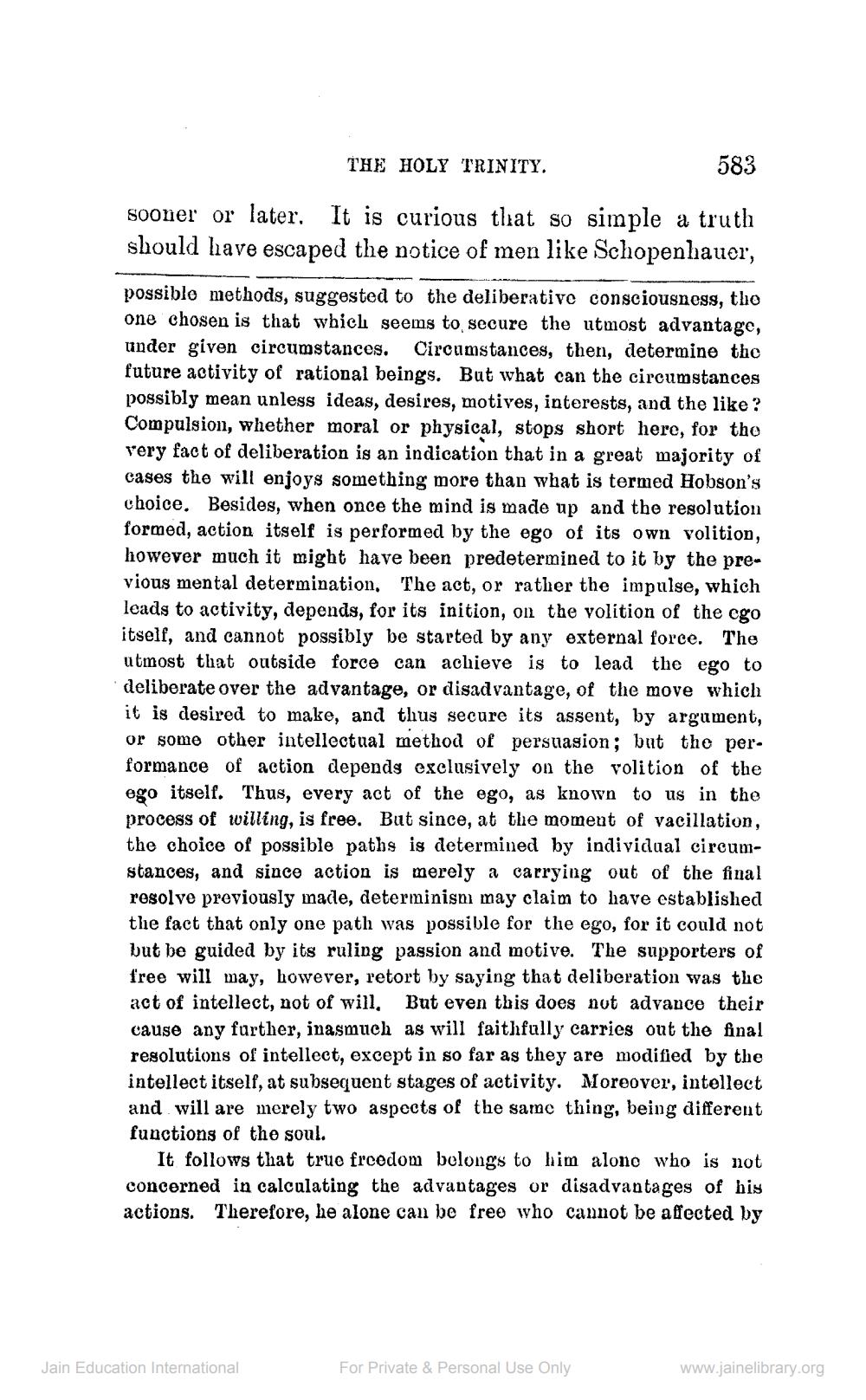________________
THE HOLY TRINITY.
583 sooner or later. It is curious that so simple a truth should have escaped the notice of men like Schopenhauer,
possible methods, suggested to the deliberative consciousness, the one chosen is that which seems to secure the utmost advantage, under given circumstances. Circumstances, then, determine the future activity of rational beings. But what can the circumstances possibly mean unless ideas, desires, motives, interests, and the like? Compulsion, whether moral or physical, stops short here, for the very fact of deliberation is an indication that in a great majority of cases the will enjoys something more than what is termed Hobson's choice. Besides, when once the mind is made up and the resolution formed, action itself is performed by the ego of its own volition, however much it might have been predetermined to it by the previous mental determination. The act, or rather the impulse, which leads to activity, depends, for its inition, on the volition of the cgo itself, and cannot possibly be started by any external force. The utmost that outside force can achieve is to lead the ego to deliberate over the advantage, or disadvantage, of the move which it is desired to make, and thus secure its assent, by argument, or some other intellectual method of persuasion; but the performance of action depends exclusively on the volition of the ego itself. Thus, every act of the ego, as known to us in the process of willing, is free. But since, at the moment of vacillation, the choice of possible paths is determined by individual circumstances, and since action is merely a carrying out of the final resolve previously made, determinism may claim to have established the fact that only one path was possible for the ego, for it could not but be guided by its ruling passion and motive. The supporters of free will may, however, retort by saying that deliberation was the act of intellect, not of will. But even this does not advance their cause any further, inasmuch as will faithfully carries out the final resolutions of intellect, except in so far as they are modified by the intellect itself, at subsequent stages of activity. Moreover, intellect and will are merely two aspects of the same thing, being different functions of the soul.
It follows that true freedom belongs to him alone who is not concerned in calculating the advantages or disadvantages of his actions. Therefore, he alone can be free who cannot be affected by
Jain Education International
For Private & Personal Use Only
www.jainelibrary.org




